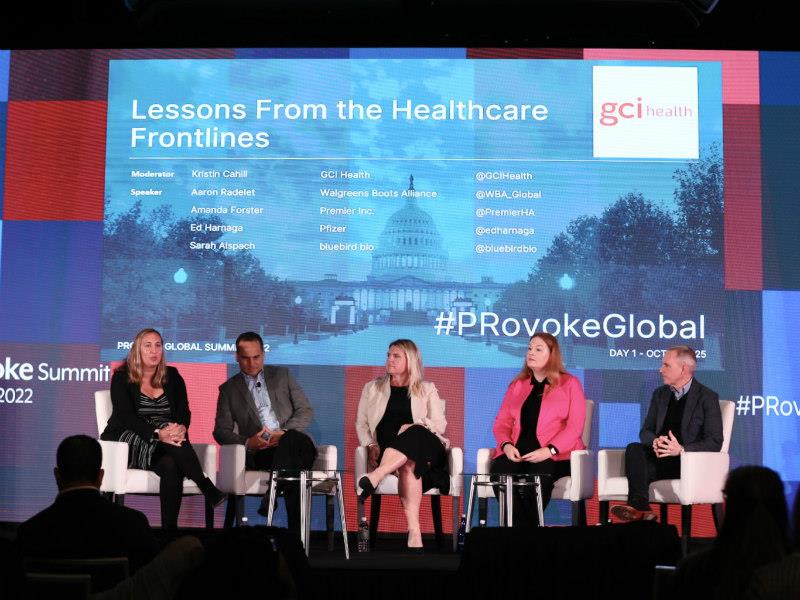(MENAFN- PRovoke)
WASHINGTON – Trusted relationships, clear information and abandoning perfection were the key to successful communications throughout Covid, PRovoke's Global Summit heard today.
Speaking at a panel session chaired by GCI health global CEO Kristin Cahill, comms chiefs from Pfizer and Walgreens Boots Alliance urged communicators not to pretend they have all the answers.
Aaron Radelet, global CCO and senior VP at Walgreens Boots Alliance, said: 'It's uncomfortable for communicators who like to have everything packaged up before we go out there with the messages. But when we said we didn't have all the answers, people trusted us more.'
Ed Harnaga, senior VP at Pfizer, added that giving comms a seat at the table was vital. 'We need to advocate for the role of communications and we need to be at the table every step of the way.'
Harnaga said at the height of the pandemic, Pfizer's favourability scores were at 63% - compared to 28% in January 2020. 'We had a relevance in people's lives that was so critical. We brought people inside the industry and showed them what we can do – it's important for every company in the sector to continue to do that.'
Radelet said fronting information campaigns with pharmacists and leveraging established relationships with media, government and community groups also helped establish trust. 'We all have that friend who only calls when they need a favour – you never want to build relationships that way. Build them over time, day in and day out.'
But the pandemic wasn't just about getting information out there, it was also about dealing with misinformation. Harnaga said whilst he knew there would be hesitancy and antivax rhetoric, 'we didn't anticipate the level of activity we'd see'.
The sheer volume of misinformation meant that not every claim could be responded to, but he said pursuing a proactive strategy with content that addressed issues in factual ways meant that the relevant information was available, and he also praised the factchecker media in the US for 'serving an incredible role'.
Amanda Forster, VP comms at healthcare alliance Premier Inc, said one of the biggest stakeholders the industry needed to educate was the government, especially when it came to issues around supply chain.
Citing an example of a shortage of swabs leading to difficulties getting tests to communities, she emphasised the importance of 'dealing with the here and now'.
Technology and AI in healthcare can learn from this by stopping overselling and over-promising, focusing not on what their offerings may be able to do in the future, but sticking with the grounding of what it can do now.
'There's a way to speculate smartly, you can say what you don't know and why you don't know it,' Forster said. 'Often people just want to know the why – and they'll give you the benefit of the doubt.'
Internal communications also underwent upheaval, the panel agreed, and Sarah Alspach, CCO of bluebird bio, said glossy, well-produced updates at pre-agreed times 'have been thrown out the window'.
'We're in an age of pop-up comms, more open discussion, less slides, more open chats. Anyone who's too corporate or uses too much spin gets called out immediately.'
MENAFN25102022000219011063ID1105079008
Legal Disclaimer:
MENAFN provides the information “as is” without warranty of any kind. We do not accept any responsibility or liability for the accuracy, content, images, videos, licenses, completeness, legality, or reliability of the information contained in this article. If you have any complaints or copyright issues related to this article, kindly contact the provider above.

























Comments
No comment